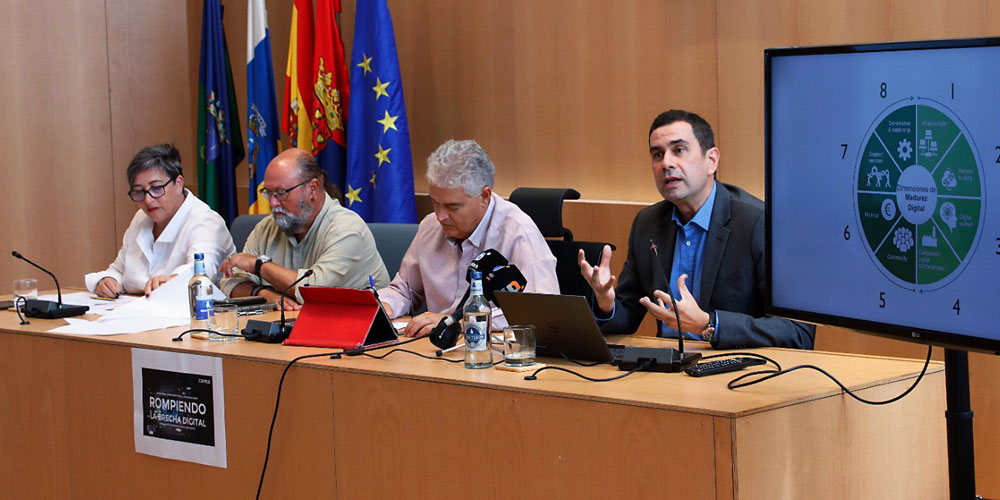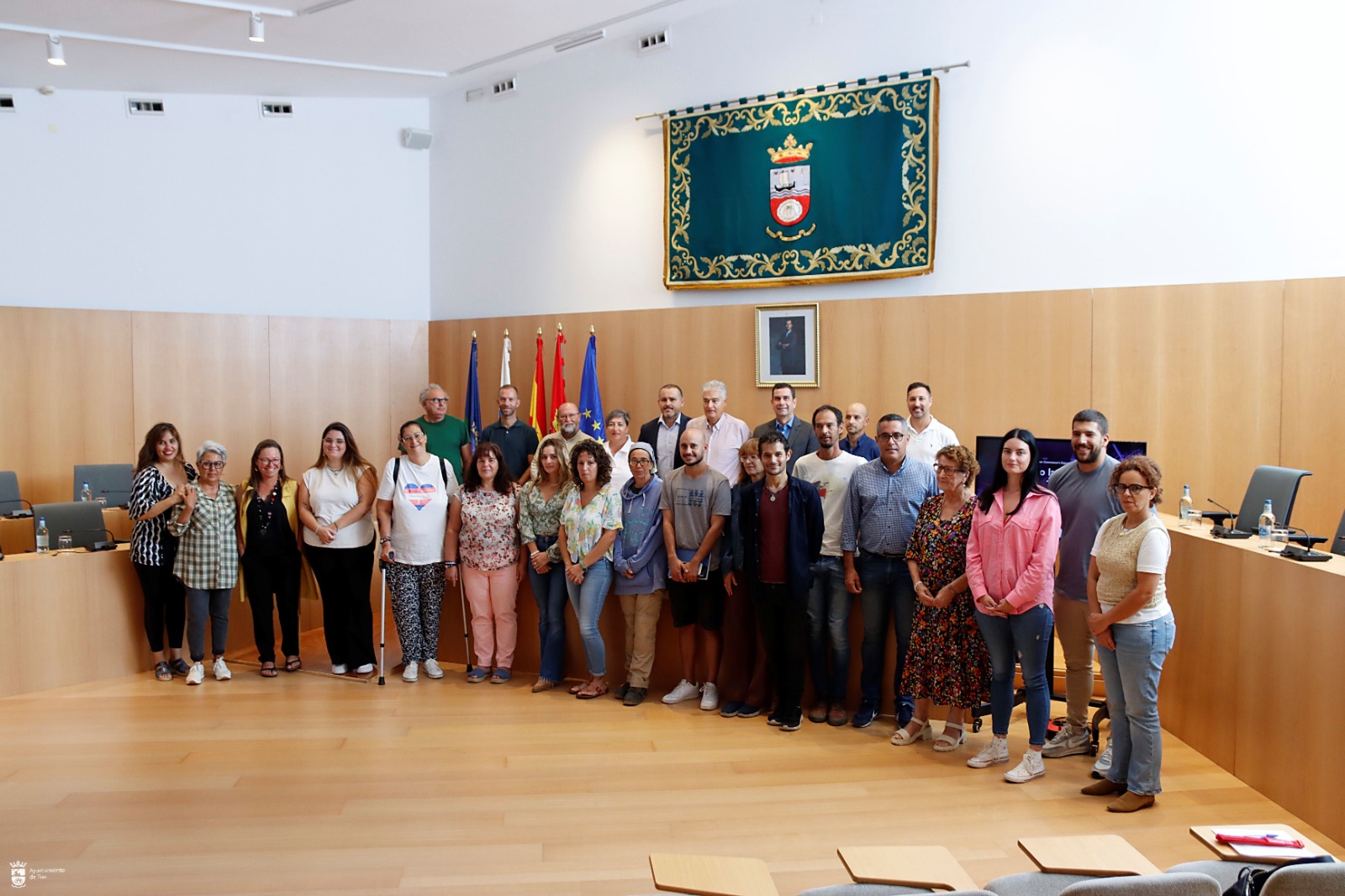Noticias
Tías presents its project, pioneer in Lanzarote, ‘Breaking the Digital Divide’

The goal of the project is to facilitate a better access to digital procedures through the implementation of an action plan that transforms the life of citizens and entrepreneurs.
TO The City Council of Tías is the pioneer on the Lanzarote Island in the implementation of the project ‘Rompiendo la Brecha Digital’ (in English, Breaking the Digital Divide), whose goal is to facilitate a better access to digital procedures through the implementation of a digital action plan that transforms the life of citizens and entrepreneurs.
The presentation of the project was chaired by the Mayor, José Juan Cruz; the Deputy Mayor, Nicolás Saavedra; the IT Councillor, Kalinda Pérez; and the regional director of the Carsa Group, Antonio Collado. Carsa is the entity in charge of designing the municipality’s digital transformation strategy and creating an action plan with processes aligned with the ones developed for the European Union (EU).
José Juan Cruz explained that “the town of Tías has been particularly hit by the pandemic, bringing out the technological difficulties faced not only by the administration but neighbors and entrepreneurs to the fore”.
Kalinda Pérez elaborated on the “huge difficulties we all face when having to carry out procedures through digital means, not only with the administrations but other public entities such as universities and schools or private organizations such as banks and companies. This project will help us meet the challenges of the present and the future”.
Next Generation, the EU’s economic stimulus program in the face of the Covid-19 pandemic includes 2.018 billion euros to help rebuild a greener, more digital and resilient Europe.
‘Breaking the Digital Divide’ in Tías follows the methodology of the Digital Cities Challenge, “which establishes both the initial level of municipality’s digitalization and the necessary process to make reasonable progress within a scale of the town’s digital maturity”, as stated in the presentation.
The design of the municipality’s digitisation strategy includes a deepening of the digital skills, counselling, implementation, electronic administration, cybersecurity, big data and analytics, definition of infrastructure and resources, business support and the development of a digital community.
Once the presentation ended, a workshop was carried out with the different groups from the municipality present in the act.
Regarding the municipality’s digital transformation action plan, concrete projects will be developed, funding needs studied and the possibility of obtaining funds through regional, national and European public calls explored.


